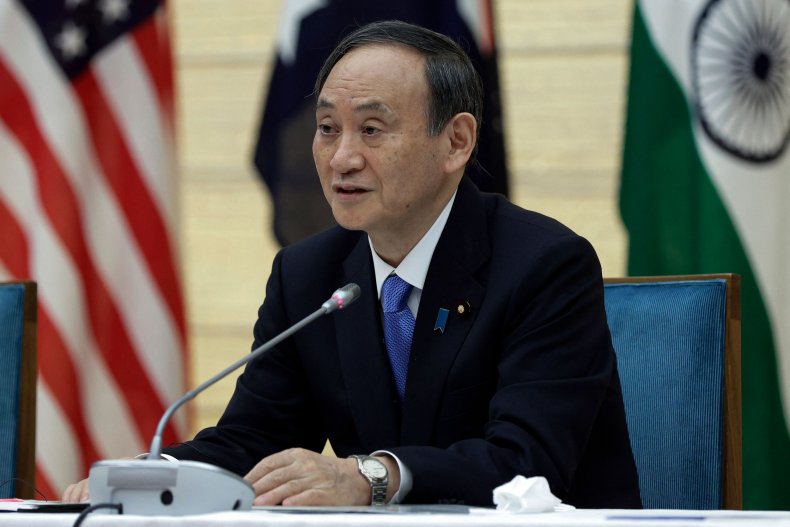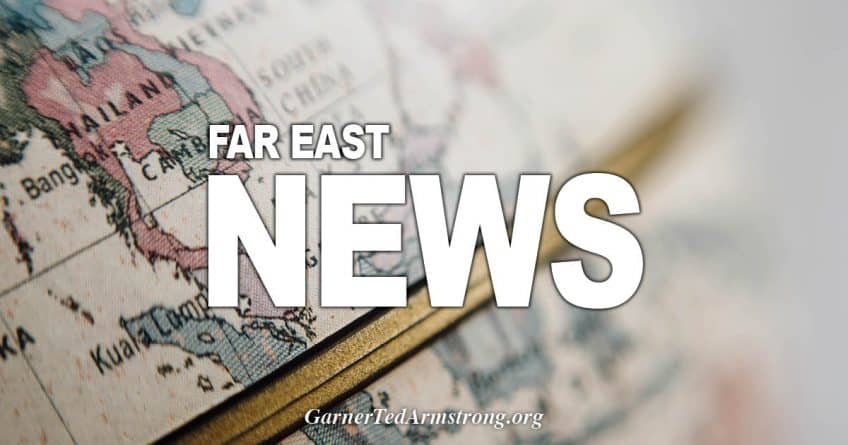U.S. ‘Maximum Pressure’ in South China Sea ‘Unprecedented’: Beijing Report
China’s ruling party claims sovereignty over the self-ruled island, which has been an unofficial U.S. partner in Asia for decades and now counts Japan among its closest allies.
A cross-strait conflict would inevitably impact other nations in the region, especially Japan, whose westernmost inhabited island of Yonaguni lies less than 70 miles off Taiwan’s east coast.
An unconfirmed Kyodo News report after the ministerial meetings said Tokyo had also agreed to closely cooperate with Washington in the event of a military conflict between Taiwan and China, highlighting the effect such a clash would have on regional stability.
U.S. government concerns about a Taiwan Strait crisis and its potential impact on the region have been discussed in private for nearly 30 years, said senior defense analyst Su Tzu-yun, who believes there is a public shift from ambiguity to clarity when it comes to the importance of Taiwan’s security.
“It’s clear that they believe strategic ambiguity can help prevent conflict,” he told Newsweek. “The U.S.-Japan joint statement next week will act as a clear commitment to allies and deter China’s military adventurism.”
Bound by a mutual defense treaty, Tokyo and Washington are obliged to assist one another if either’s safety is jeopardized. Suga and Biden are expected to reaffirm the defense agreement in April, which will cover the Senkaku Islands—controlled by Japan and claimed by China as Diaoyu.
Su, an associate research fellow at the Institute for National Defense and Security Research, a government-funded think tank in Taipei.
The Japanese government is planning to increase its troop presence on Yonaguni—part of Okinawa Prefecture—which is currently home to around 1,700 inhabitants and fewer than 200 soldiers, according to a recent report by Tokyo newspaper Yomiuri Shimbun.
The move would boost Japan’s national defense capabilities as cross-strait tensions between Taipei and Beijing continue to escalate, but the “geopolitical strategy” would also offer support for U.S. troops stationed in the region, Su said.
Wednesday’s Global Times editorial concludes that Washington and Tokyo are collaborating against China for their own gain—the U.S. for “global and regional hegemony” and Japan for “more security guarantees” as Suga seeks re-election in the fall.
“The current state of affairs is a result of Beijing’s military expansionism, so it is caught in a dilemma. It doesn’t want other countries to come together to contain it, but it’s provoking other countries,” said Su.
“Beijing needs to understand that it doesn’t benefit from its military expansionism, but it does reflect its domestic problems, which it is trying to solve by displaying nationalism through its military.”
Prime Minister Suga and President Biden’s summit is scheduled for April 9.

Japan’s Prime Minister Yoshihide Suga speaks during the virtual Quadrilateral Security Dialogue (Quad) meeting, at his official residence in Tokyo on March 12, 2021.KIYOSHI OTA/POOL/AFP VIA GETTY IMAGES
Source: https://www.newsweek.com/china-media-warns-japan-against-siding-us-over-taiwan-1580039
[Disclaimer]









